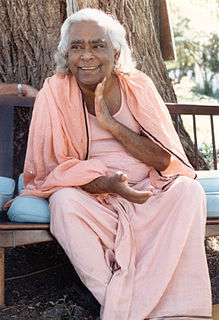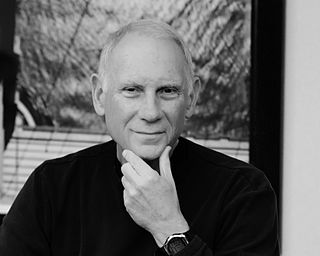A Quote by Akkineni Nagarjuna
Just as the grammarian makes one study grammar,
A Buddha teaches according to the tolerance of his students;
Some he urges to refrain from sins, others to do good,
Some to rely on dualism, other on non-dualism;
And to some he teaches the profound,
The terrifying, the practice of enlightenment,
Whose essence is emptiness that is compassion
Related Quotes
Let's consider: at the time of the Buddha, when he attained enlightenment, according to the old texts, in the first watch of the night, he went through all of his past lifetimes. Then in the second watch of the night, his mind opened still further and encompassed the coming into being and dying and re-coming into being of all beings, everywhere. The third watch of the night, he realized interdependent origination. He realized interdependent origination because he saw it. It wasn't some theory he thought up. He saw it. That was his enlightenment experience. That was why he was a Buddha.
The antidote to hatred in the heart, the source of violence, is tolerance. Tolerance is an important virtue of bodhisattvas [enlightened heroes and heroines] - it enables you to refrain from reacting angrily to the harm inflicted on you by others. You could call this practice "inner disarmament," in that a well-developed tolerance makes you free from the compulsion to counterattack. For the same reason, we also call tolerance the "best armor," since it protects you from being conquered by hatred itself.
It strikes me that mathematical writing is similar to using a language. To be understood you have to follow some grammatical rules. However, in our case, nobody has taken the trouble of writing down the grammar; we get it as a baby does from parents, by imitation of others. Some mathematicians have a good ear; some not (and some prefer the slangy expressions such as 'iff'). That's life.
Thich Nhat Hanh has the ability to express some of the most profound teachings of interdependence and emptiness I've ever heard. With the eloquence of a poet, he holds up a sheet of paper and teaches us that the rain cloud and the tree and the logger who cut the tree down are all there in the paper. He's been one of the most significant carriers of the lamp of the dharma to the West that we have had.
These various forms appear different in shape and size, yet they are of a single essence. . . . The Sixth Patriarch called it "essence of Mind". . . Here the Third Patriarch calls it "timeless Self-essence." Bankei called it "unborn Buddha-mind." They all refer to the same thing: Buddha-nature, true self. This essence is not born and can never die. It exists eternally. Some call it energy; others call it spirit. But what is it? No one knows. Any concept we have of what it is can only be an analogy. . . .
Superstition, in all times and among all nations, is the fear of a spirit whose passions are those of a man, whose acts are the acts of a man; who is present in some places, not in others; who makes no places holy and not others; who is kind to one person, unkind to another; who is pleased or angry according to the degree of attention you pay him, or praise you refuse to him; who is hostile generally to human pleasure, but may be bribed by sacrifice of a part of that pleasure into permitting the rest. This, whatever form of faith it colors, is the essence of superstition.



































